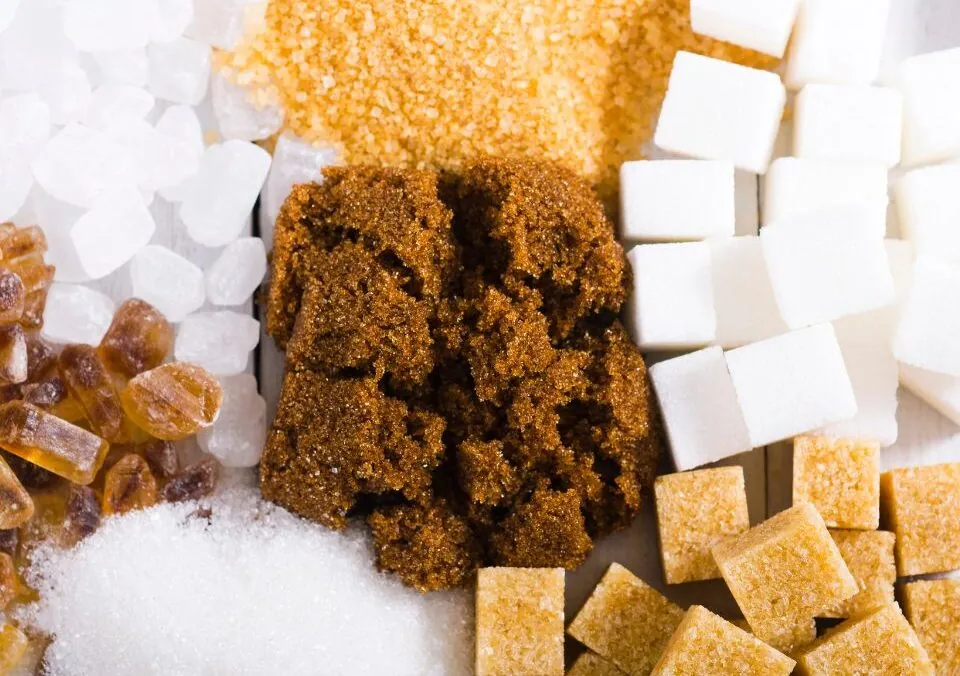Blog
The Low-Down on Low-Calorie Sweeteners

Artificial sweeteners have become ubiquitous in our food and beverage choices, often marketed as health-conscious alternatives to sugar. They’re just as sweet, if not sweeter, than regular sugar and are often advertised as containing little to no calories. However, the notion of “calorie-free” sweetness can sound almost too good to be true. To better understand the implications of incorporating artificial sweeteners into our diets, we can turn to insights from registered dietitian nutritionist Bianca Tamburello and delve deeper into some of the most popular substances in this category.
Understanding Low-Calorie Sweeteners
Low-calorie sweeteners are defined as substances that provide a sweet taste but contain fewer calories than regular sugar or none at all. They are often derived from natural sources or synthesized chemically. With obesity rates rising, many people are resorting to these sweeteners as a means to indulge their sweet tooth without the extra calories. However, their long-term effects on health are still being studied.
Sugar Alcohols Erythritol, Sorbitol, Mannitol, and Xylitol
These are among the most common sugar alcohols. These substances, found in various fruits and plants, provide sweetness with fewer calories—about one-third to half the calories of regular sugar.
- Erythritol has gained popularity in recent years due to its high acceptance in ketogenic and low-carb diets. Unlike other sugar alcohols, erythritol is almost completely absorbed in the small intestine and is excreted unchanged in urine. Studies suggest that it does not spike blood glucose or insulin levels, making it a safe option for diabetic individuals.
- Sorbitol and Mannitol can linger in the intestines longer and might cause digestive discomfort in some people, especially in larger quantities. You can find more details about sorbitol and its effects here while mannital’s effects can be seen here.
- Xylitol, which is commonly found in sugar-free gums and dental care products, has been shown to have dental health benefits by reducing cavities. However, it can be harmful to pets, particularly dogs.
Aspartame (Equal)
Aspartame, a widely used artificial sweetener, consists of two amino acids: phenylalanine and aspartic acid. It’s roughly 200 times sweeter than sugar while providing only 4 calories per gram. While aspartame is generally classified as safe for consumption, its method of production raises concerns. In high quantities, aspartame breaks down into methanol, which has been linked to various health issues. The compound has drawn scrutiny for potentially being carcinogenic, leading many to choose alternatives. For thorough information on aspartame, you can check resources from the FDA.

Saccharin (Sweet N Low)
Saccharin is one of the oldest artificial sweeteners, saccharin, offers a sweetening potency up to 300 times that of sugar. The key advantage is that it has zero calories per gram. Saccharin is not metabolized by the body, keeping blood sugar levels stable; however, studies have indicated that it can alter our gut microbiome negatively. Saccharin’s history has been fraught with debates over safety. Earlier research linked it to bladder cancer in laboratory rats, leading to public fear and calls for bans. However, subsequent research has exonerated saccharin for human consumption. For a comprehensive history of saccharin, you can explore the site of the National Institute of Health.
Sucralose (Splenda)
Sucralose is unique among artificial sweeteners as it is created by chlorinating sugar molecules, effectively altering their structure to create a zero-calorie sweetener. It’s roughly 600 times sweeter than sugar, which is why it appears in so many sugar-free products, including beverages and baked goods. One significant concern with sucralose is that, upon heating, it can produce potentially harmful byproducts like chloropropanols. This has led to warnings against using sucralose in high-temperature cooking. More details about sucralose’s properties can be found through health articles here.
Stevia and Monk Fruit
Stevia and Monk Fruit are derived from plants, both stevia and monk fruit are touted as more natural alternatives to artificial sweeteners. They contain zero calories, making them appealing options for those looking to cut down on sugar.
- Stevia has been linked with digestive disruptions in some individuals, which can inhibit gut health. It’s essential to use it judiciously and be mindful of how it affects your body. More information about stevia can be found here.
- Monk fruit, on the other hand, has not been as extensively studied. While it is often considered safe, the lack of substantial evidence raises questions about its long-term effects. You can read about the benefits and potential drawbacks of monk fruit here.
Health Implications of Artificial Sweeteners
While initially enticing due to their calorie-reduced nature, artificial sweeteners come with health implications that need consideration. Research is ongoing, but certain patterns are emerging regarding their effects on metabolic health, gut microbiome, and overall wellbeing.
- Metabolic Effects: Some studies suggest that consuming artificial sweeteners may inversely correlate with weight loss. For instance, one research paper published in the journal Appetite indicated that the long-term effects of artificial sweeteners could lead to increased cravings for sugary foods and, thus, calorie consumption.
- Gut Health: Numerous studies indicate potential alterations to gut microbiota due to the consumption of artificial sweeteners. A recent systematic review highlights how artificial sweeteners can disrupt metabolic health through gut microbial mechanisms.
- Psychological Impacts: Consumers of artificial sweeteners often assume they can compensate for lower-calorie consumption by indulging in other high-calorie foods or drinks. This “compensatory effect” can negate the benefits of using low-calorie sweeteners. Additionally, the use of sweeteners changes our taste perception, potentially increasing cravings for sweet and high-calorie foods.
Conclusion
Artificial sweeteners present an appealing option for those seeking to manage their sugar intake while enjoying sweetness in their diets. However, as with many processed food products, moderation is key. They are not entirely devoid of risks, and consumers should remain informed about their choices. It’s essential to consider individual reactions and overall health concerns when incorporating these sweeteners into your diet.
Instead of relying solely on artificial sweeteners, exploring more natural options, such as raw honey or pure maple syrup, could be beneficial. Balancing sweetness with whole foods and natural sugars can lead to sustainable dietary habits. Always consult with a registered dietitian or a healthcare professional for personalized advice and information tailored to your needs.
For more articles and insights into health and nutrition, feel free to visit the Fill Your Plate blog! Always remain diligent and informed about the products you choose to consume.
By Heide Kennedy, Arizona Farm Bureau Communications Intern


















